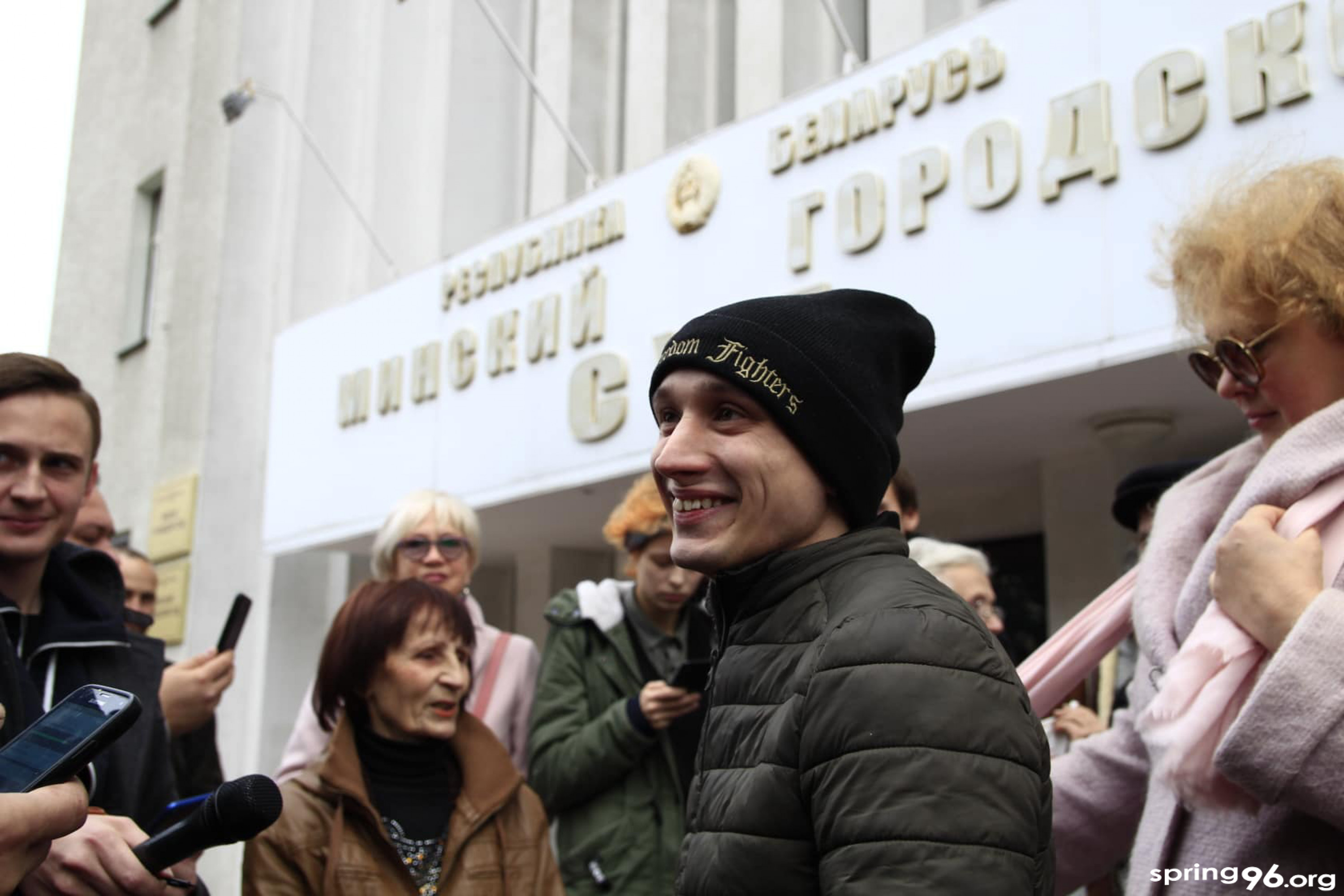Ex-prisoner of conscience Dzmitry Paliyenka gets 10 months of “house arrest” Updated
Dzmitry Paliyenka, former political prisoner and Amnesty International’s prisoner of conscience, has been sentenced to three years of “restricted freedom,” after a highly controversial trial at the Minsk City Court. The sentence will be reduced to 10 months, considering a recent amnesty and the defendant's stay in pre-trial detention. The activist was released in the courtroom.
Paliyenka was found guilty of using pepper spray against a passer-by during a conflict in March 2019. The court qualified the offense as “especially malicious hooliganism” (Art. 339, Part 3 of the Criminal Code).
The trial was expected to be held behind closed doors. To protest the decision, Dzmitry Paliyenka slashed his arm shortly after being brought to the courtroom. As a result, the judge announced an open trial, while the prosecutor unexpectedly dropped three of the four charges against the activist. Yet, the remaining charge could have resulted in lengthy imprisonment, after the prosecutor requested a 6-year sentence.
The three hearings in the case exposed multiple contradictions between the victim’s testimony and those given by the witnesses during the investigation and in the courtroom. Paliyenka himself and his lawyer insist that the defendant used pepper spray for self-defense.
The activist, who describes himself as an anarchist, will be confined to his apartment. He will also have to undergo compulsory treatment for alcohol abuse.
While welcoming the lenient sentence, Viasna’s human rights defenders stress that the verdict carries numerous restrictions, most notably on the convict’s movement, the violation of which may result in imprisonment.
They also criticize the court’s decision to order a course of treatment for alcoholism, which was based on the findings of an expert.
“The expert failed to consider a number of circumstances brought up by the defense, so the decision does not look sound,” Pavel Sapelka, Viasna’s observer in the trial, said in a comment.
“We welcome the fact that the prosecution dropped the clearly politically motivated charges (inciting social hatred and insulting an official). Yet, courts in Belarus are not independent enough to hand down an acquittal in an overtly political case,” Sapelka said.


















